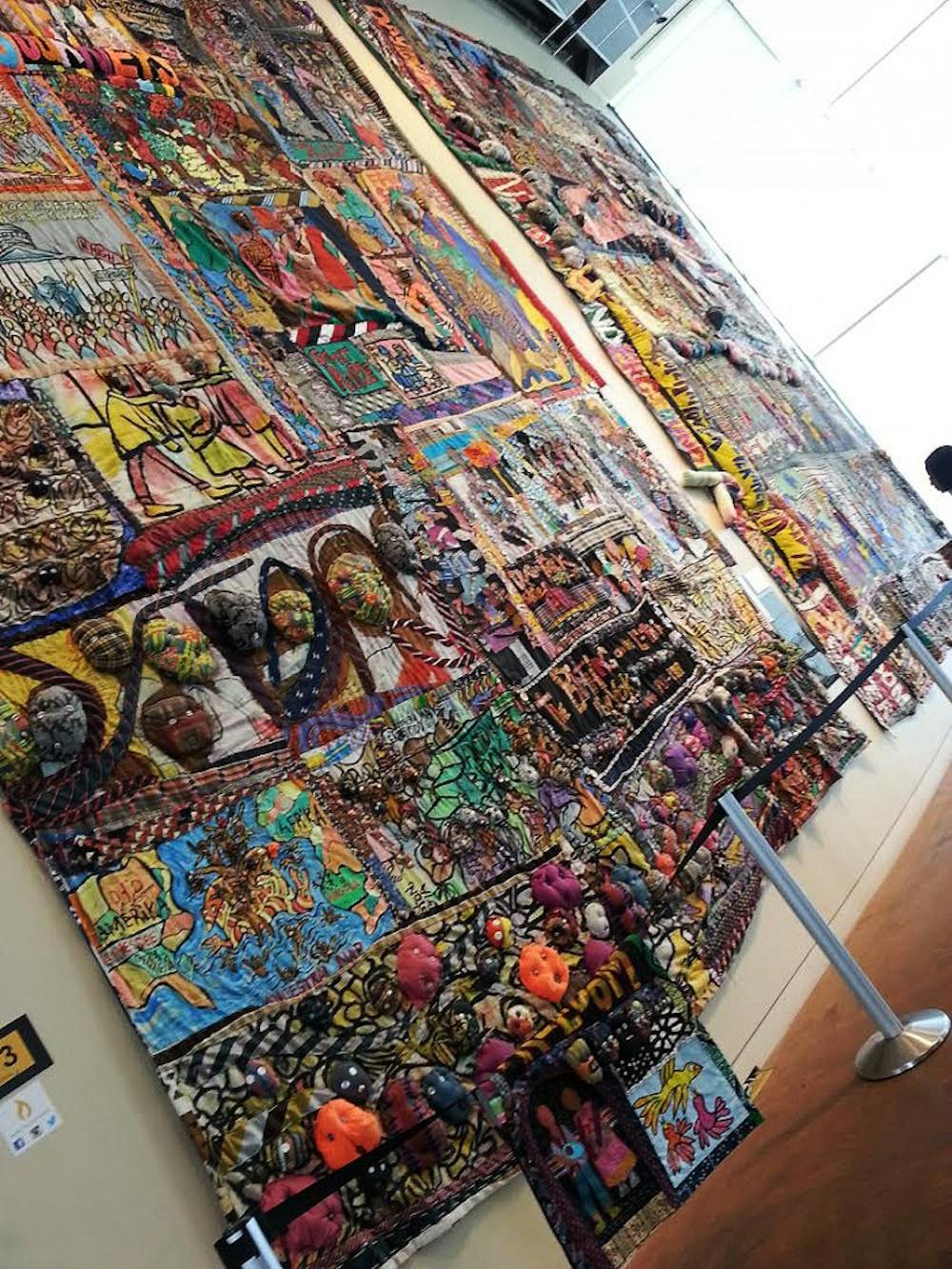“I was the conductor of the Underground Railroad for eight years, and I can say what most conductors can’t say; I never ran my train off the track and I never lost a passenger,” Harriet Tubman said at a suffrage convection in New York in 1896, according to harriettubmanbiography.com
The Black Student Association took a trip back in time this past weekend, as it visited the National Underground Railroad Freedom Center.
BSA took the trip to give its body members the opportunity to learn and catch up on their history as black people during black history month, BSA member Keayra Williams said.
“In order to celebrate black history during Black History Month, we actually have to know our history,” Williams said. “By going to the museum, we had the opportunity to learn things that we wouldn't have learned anywhere else.”
The Freedom Center, located in Cincinnati, Ohio, is a historical museum with a mission "to reveal stories of freedom’s heroes, from the era of the Underground Railroad to contemporary times, challenging and inspiring everyone to take courageous steps of freedom today," according to freedomcenter.org.
The Underground Railroad was the term used to describe a network of persons who helped escaped slaves on their way to freedom in the northern states or Canada during the 19th century, according to history.com. The most active of the railroad workers were northern free blacks, with the most famous “conductor” being Harriet Tubman, an escaped slave who made 19 return trips to the South to help free more than 300 African American slaves.
The museum, which attracts more than 100 thousand visors annually, serves to inspire modern abolition through connecting the lessons of the Underground Railroad with today’s freedom fighters through dialogue on freedom and human rights.
Williams said the overall experience was amazing and more than what she and others expected it to be.
“The Underground Railroad is a very important and crucial aspect to why we are where we are today,” Williams said. ”History is not something to be forgotten and taken advantage of. It's something that should be remembered in every generation of life.”





